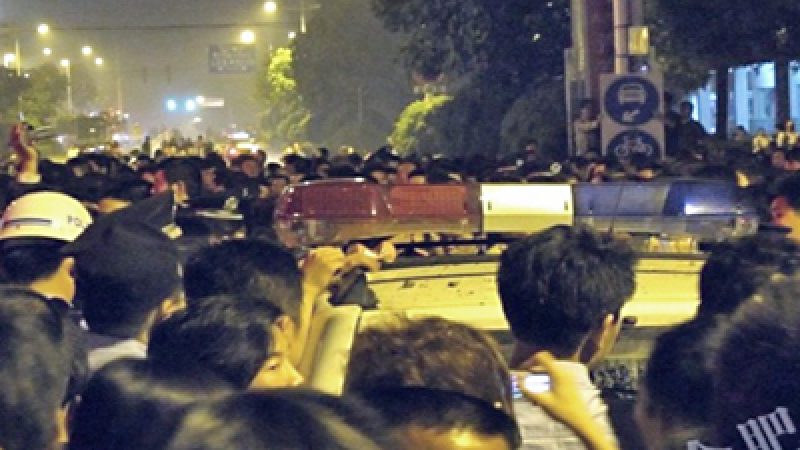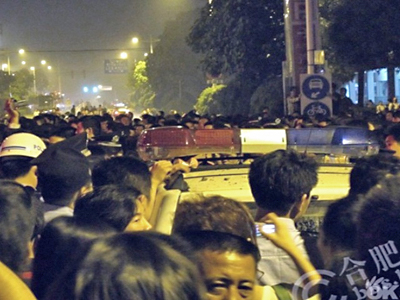
China: Thousands Protest after Chinese Official Slaps School Boy

A minor traffic accident in Maanshan City in China’s eastern Anhui province turned into a 6-hour standoff between thousands of protestors and the police.
Last Friday at around 6:00 p.m., Huashan district tourism bureau Director Wang Guoqing hit a student with his car. Instead of apologizing, Wang slapped the boy on the face, injuring his eye.
According to local media, when onlookers demanded Wang apologize, he refused. Instead, he told bystanders, quote “Do you know who I am? I’m a leader!” — referring to his position as a communist official.
Bystanders got riled up. And as the news of the incident spread, more people arrived at the scene. They surrounded Wang’s car.
When Wang called for help, the crowd stayed put, stopping police and fire fighters from taking Wang away. The crowd reportedly grew violent after authorities called in anti-riot police. Eventually, at around 11:30 p.m. police used teargas to force away the protestors.
This is part of a growing social phenomenon in China, called ‘mass incidents.‘ They are usually triggered by an event that’s ignited public anger, such as mass layoffs, land seizures, pollution and, as in this case, communist officials abusing their power.
In February this year, The Chinese Academy of Social Sciences warned that increasing mass incidents will be a major challenge to the Chinese regime’s efforts to maintain social stability.
 Foto: NTDTV
Foto: NTDTV



























vielen Dank, dass Sie unseren Kommentar-Bereich nutzen.
Bitte verzichten Sie auf Unterstellungen, Schimpfworte, aggressive Formulierungen und Werbe-Links. Solche Kommentare werden wir nicht veröffentlichen. Dies umfasst ebenso abschweifende Kommentare, die keinen konkreten Bezug zum jeweiligen Artikel haben. Viele Kommentare waren bisher schon anregend und auf die Themen bezogen. Wir bitten Sie um eine Qualität, die den Artikeln entspricht, so haben wir alle etwas davon.
Da wir die Verantwortung für jeden veröffentlichten Kommentar tragen, geben wir Kommentare erst nach einer Prüfung frei. Je nach Aufkommen kann es deswegen zu zeitlichen Verzögerungen kommen.
Ihre Epoch Times - Redaktion